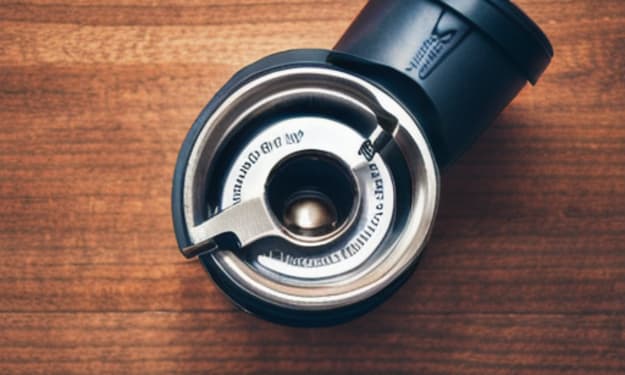Cupping and Cuppers
By Écrivain Placard

Cupping

The process of tasting coffee is called "cupping", and it involves evaluating the flavor and aroma of brewed coffee. Cupping is typically done by professional tasters, also known as "cuppers", who have undergone specialized training to develop their palates and hone their sensory skills.
During cupping, a sample of freshly roasted coffee is ground and then steeped in hot water. The cupper then evaluates the aroma of the coffee, inhaling deeply to detect the various scents and notes. After letting the coffee cool for a few minutes, the cupper will use a spoon to break the crust that has formed on the surface of the coffee, allowing them to evaluate the flavor of the brew.
There are several specific criteria used to judge the quality of coffee during cupping, including:
- Flavor: This encompasses the overall taste of the coffee, including any specific notes or flavors that can be detected, such as chocolate, fruit, or nuttiness.
- Aroma: This refers to the fragrance of the brewed coffee, and can include notes of floral, citrus, or earthiness, among others.
- Acidity: This refers to the level of tartness or brightness in the coffee, and can range from high and bright to low and mellow.
- Body: This refers to the weight and texture of the coffee in the mouth, and can range from light and delicate to heavy and full-bodied.
- Aftertaste: This refers to the lingering flavors and sensations that remain after the coffee is swallowed.
Cuppers
Expert Cuppers: A Closer Look at Famous Coffee Tasters
There are many famous cuppers and coffee experts in the industry, each known for their unique contributions and areas of expertise. For example, James Hoffmann is a former World Barista Champion and the founder of Square Mile Coffee Roasters in London. He is known for his innovative approach to coffee tasting and has written several books on the subject.
Scott Rao is another well-known figure in the coffee industry, with a focus on brewing and roasting techniques. He is the author of several popular books on coffee, including "The Coffee Roaster's Companion" and "Everything But Espresso".
Tim Wendelboe is a Norwegian coffee roaster and former World Barista Champion, known for his focus on sustainability and transparency in the coffee industry. He has won numerous awards for his coffees and is highly regarded for his cupping skills and palate development.
Other famous cuppers include George Howell, the founder of Terroir Coffee and a pioneer in the specialty coffee movement; Willem Boot, a Dutch coffee educator and the founder of Boot Coffee Consulting; and Ellie Matuszak, the head coffee buyer for Stumptown Coffee Roasters and a certified Q Grader.
The Grading System for Cuppers: From Q Graders to Sensory Judges
Cupping is a crucial process in evaluating coffee quality, and those who excel in this skill are known as cuppers. These professionals are trained to assess coffees based on specific criteria, including flavor, aroma, and body. To become a certified cupper, individuals must undergo rigorous training and pass a series of exams.
Q Graders: The Elite of the Cupping World
The most well-known certification for cuppers is the Q Grader program, offered by the Coffee Quality Institute (CQI). This program involves a week-long course that covers coffee evaluation, sensory analysis, and more. At the end of the course, participants must pass a series of exams to become certified Q Graders.
Sensory Judges: Evaluating Coffee Competitions
Another area where cupping plays a significant role is in coffee competitions, where sensory judges evaluate entries from around the world. These judges use a standardized scoring system to evaluate coffees based on factors such as aroma, flavor, aftertaste, and more. The highest-scoring coffees are awarded prizes and recognition.
Grades and Scores: What They Mean for Coffee Quality
Coffee is typically graded on a 100-point scale, with scores of 80 or above indicating specialty coffee. Coffees that score lower than 80 are considered commodity-grade. The highest-scoring coffees are often prized for their unique flavors and characteristics, and can command premium prices in the market.
About the Creator
Écrivain Placard
Curious reader and researcher, always exploring the lesser-known corners of the world. Sharing obscure findings and insights with fellow knowledge-seekers. Never satisfied with the obvious, always digging deeper for the truth.






Comments
There are no comments for this story
Be the first to respond and start the conversation.